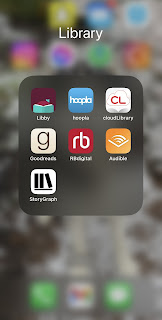Negative reviews. If we haven't yet gotten them, we soon will. All of us. Authors, singers, actors, painters, cooks, mechanics - every one who does anything ever will be subject to critique and criticism. The trick is to laugh it off and not let it bother you. If your palms sweat and your heart races at the words of someone who has consumed what you've created, if you read those words and feel your soul shrivel, don't read reviews. I'm not kidding. Reviews aren't for the creator of a thing, anyway. Let me attempt to impose order on my disorganized thinking:
The question as it was posed suggests that one of my peers struggles with a heightened stress response when a negative review comes in. I'll start by saying this is normal. This is expected. STOP READING YOUR REVIEWS. Not because you're having a stress response, though this advice will help lower your cortisol level, honest.
Reviews are coded messages that don't come with decoder rings. They're also not meant for the author. They're meant for other readers. I'll start with the last one first. Reviews by readers and official reviewers are meant to help readers find books. They're to help readers find your book in particular and let them know that you don't kill the dog that shows up on page 112. Reviews are to help readers decide if the trigger/content warnings in your book are something they can handle. Is it true you're going to get some snobby git who questions your intelligence, sneers at your story, and awards you a single star? Yes. Ask me how I know. But it's also true that the person who wrote that review already bought your book and paid you in money, time, and energy for the privilege of taking a swipe at you. If that stresses you out, work that stress off by walking that check to the bank. Seriously. Don't read your reviews. What's the point? The book is done. It's released. You've set it free into the world. It isn't yours any more. It belongs to the audience now. (Barring obvious glitches and techie errors, obviously - I have fixed things that changed a story based on realizing I'd made a pretty big narrative mistake.) If looking at reviews is a problem for you, get another author friend to read them before you see them and remove the snarkiest. What are author friends for?
The decoder ring comment. In my experience, rarely do negative reviews mean what they say. The one star review I got on an award-winning novel went something like: "I don't know why everyone is giving this book 5 stars. It's nothing new or interesting." Sounds like a negative review, doesn't it? Except there's a message hidden in that terse little slap at my wrist. That coded message is "I had a book like this in my head but not the courage to write it. How dare you." How do I know this? Well. Factually, I don't. But when I read the original comment, I can almost hear the dismissive sniff. Then that 'nothing new or interesting' jab suggests the reviewer does have an idea that's new and interesting along the lines of what I'd written and had published. Once you begin seeing the misery and recrimination underneath negative reviews, it's easier to laugh them off.
As a bonus, let's get tight on a definition of a negative review. What is a negative review? Too few stars? Someone pointing out problems in the story or hating on a character? I'd argue that if a reader writes a review that you can act on - someone says your heroine's eyes were green on page 3 and then they were blue on page 85 - you can find that in the text and fix it. If the critique is actionable like that, it's not a negative review. That reader helped you. Thank them and move on. You'll develop a loyal reader that way. If a review is vague and whiny 'the author can't write their way out of a wet paper bag' - well that review is useless, isn't it? Any time you see insulting statements without any constructive critique attached, you know you're dealing with jealousy. Bright, blazing, bitter green jealousy. And if someone is jealous, they want what you have. Doesn't sound like they really think your writing is all that bad, does it?
So to manage the stress of negative reviews, simply don't engage. Your sanity and your muse will thank you.





